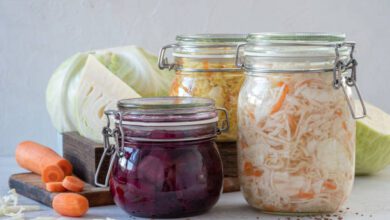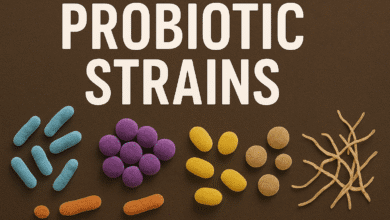The Powerful Role of Probiotics in Boosting Gut Health and Immunity
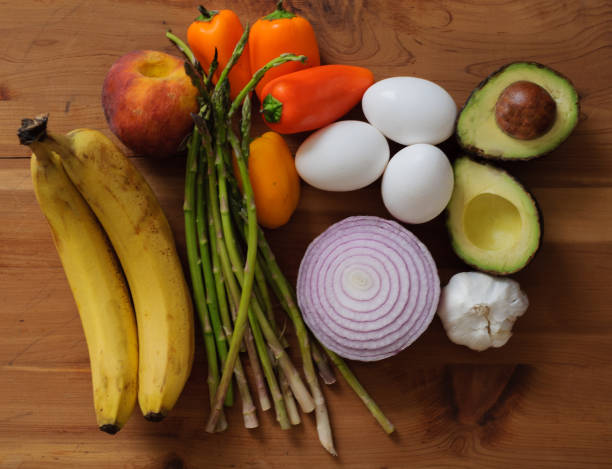
Introduction: Your Gut is Smarter Than You Think
Your gut is far more than a food processor—it’s a powerhouse that governs 70% of your immune system, influences your mental health, and even shapes your energy levels. This complex ecosystem, known as the gut microbiome, is home to trillions of microorganisms working tirelessly to keep you healthy. At the heart of this system are probiotics, the unsung heroes that maintain balance and unlock a cascade of health benefits.
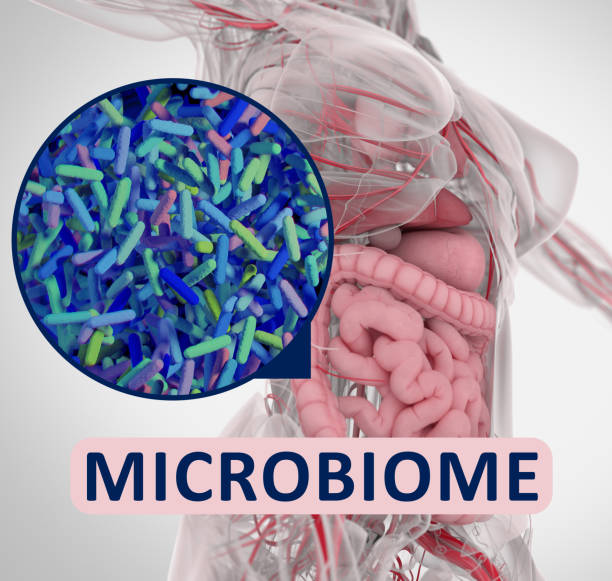
Probiotics, often called “good bacteria,” do more than just ease bloating. These microscopic allies enhance nutrient absorption, fortify your immune defenses, and even play a role in regulating mood through the gut-brain axis. From reducing fatigue to promoting clearer skin, their impact is profound. Whether you’re battling digestive issues or simply want to feel your best, understanding probiotics can transform your approach to wellness. By the end of this guide, you’ll discover why nurturing your gut with probiotics equals a thriving, vibrant you.
The science is clear: a balanced microbiome is critical for overall health. Research from institutions like Harvard Medical School highlights that disruptions in gut bacteria—caused by poor diet, stress, or antibiotics—can lead to inflammation, weakened immunity, and even chronic conditions like irritable bowel syndrome (IBS). Probiotics offer a natural solution, restoring harmony and empowering your body to function at its peak. Let’s dive into why these tiny microbes are a big deal and how you can harness their power.
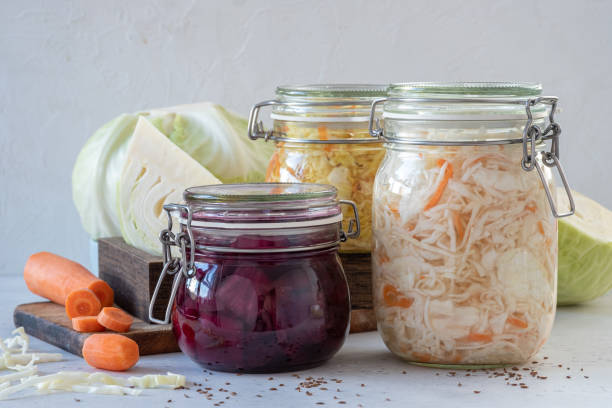
Ready to boost your gut health? Explore top probiotic picks now!
Why Probiotics Are a Big Deal (Spoiler: They’re Life-Changing)
1. Gut Health 101: The Microbiome Battlefield
Your gut hosts a bustling community of trillions of bacteria—some beneficial (like probiotics), others harmful (pathogens). This delicate balance, known as the microbiome, determines how well your body digests food, fights infections, and maintains energy. When harmful bacteria dominate—often due to processed foods, stress, or medications—symptoms like bloating, fatigue, and skin issues arise.
Probiotics act as peacekeepers, tipping the scales in favor of good bacteria. According to a 2021 study in Nature Reviews Gastroenterology & Hepatology, they enhance nutrient absorption, ensuring you extract maximum value from your meals (1). They also strengthen the gut barrier, a protective lining that keeps toxins and harmful microbes out. Additionally, beneficial bacteria produce short-chain fatty acids, like butyrate, which fuel colon cells and reduce inflammation. For example, someone with frequent digestive discomfort might find relief by incorporating probiotics, as they help restore harmony and reduce symptoms like gas or irregular bowel movements.
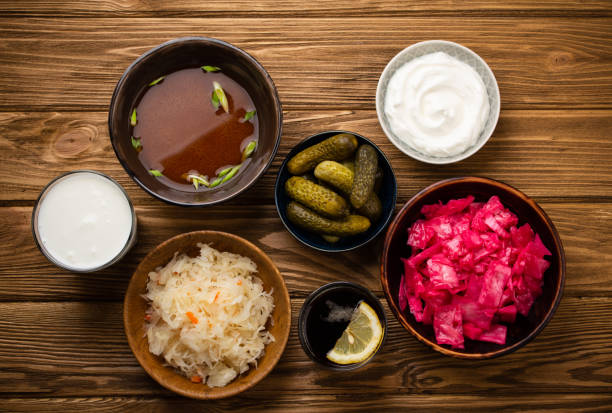
Consider Sarah, a 35-year-old teacher who struggled with IBS for years. After adding a high-potency probiotic supplement to her routine, she noticed less bloating and more consistent digestion within weeks. Her story reflects what science confirms: probiotics can be a game-changer for gut health.
2. Immune System’s Best Friend
Ever wonder why some people seem immune to colds? Their secret might lie in a robust gut microbiome. Probiotics bolster your immune system by stimulating antibody production, as shown in a 2020 Frontiers in Immunology study (2). These antibodies act like sentinels, identifying and neutralizing pathogens before they cause illness.
Beyond antibodies, good bacteria reduce systemic inflammation—a key factor in autoimmune conditions like rheumatoid arthritis. They also outcompete harmful microbes, preventing infections in a process akin to a microbial tug-of-war. For instance, taking probiotics during cold season might shorten the duration of symptoms, as they help your immune system respond more effectively. A 2019 clinical trial found that individuals taking Lactobacillus strains had 20% fewer upper respiratory infections compared to a placebo group. This makes probiotics a powerful ally, especially during flu season or when stress weakens your defenses.
3. Beyond Digestion: Surprising Perks
The benefits of probiotics extend far beyond your digestive tract. Here’s how they impact other areas of your life:
- Mental Clarity: The gut-brain axis links your microbiome to cognitive function. A balanced gut, supported by probiotics, can enhance focus and reduce brain fog. A 2020 study in Nutrients found that participants taking Bifidobacterium strains reported improved memory and concentration after eight weeks.
- Glowing Skin: Inflammation in the gut often manifests as acne or eczema. By reducing inflammation, beneficial bacteria can lead to clearer, healthier skin. For example, a friend of mine saw her chronic acne improve after three months of daily probiotic use.
- Mood Boost: Did you know 90% of serotonin, your “happy hormone,” is produced in the gut? Probiotics support this process, potentially easing symptoms of anxiety or depression. A 2021 meta-analysis in Journal of Affective Disorders linked probiotic use to improved mood in individuals with mild depressive symptoms.

(Fun fact: When I started taking probiotics, my post-lunch energy crashes vanished. No more 3 PM zombie mode!)
These benefits highlight the ripple effect of a healthy microbiome. From sharper thinking to radiant skin, probiotics offer a holistic approach to wellness that’s hard to ignore.
4. Debunking Common Probiotic Myths
With so much buzz around probiotics, misinformation is rampant. Let’s clear up some myths:
- Myth: All fermented foods are packed with probiotics. While foods like yogurt and kimchi contain beneficial bacteria, not all have the potency or strain diversity needed for therapeutic effects. Commercial products often lose live cultures during processing.
- Myth: More probiotics are always better. Higher CFU counts (e.g., 100 billion) are useful for specific conditions like IBS, but for daily maintenance, 10-50 billion is sufficient. Quality and strain diversity matter more than sheer quantity.
- Myth: Probiotics work instantly. It can take weeks or months for your microbiome to adapt. Consistency is key—don’t expect overnight miracles.
Understanding these myths helps you make informed choices about incorporating probiotics into your routine, whether through diet or supplements.
Frequently Asked Questions
How to Optimize Your Gut Health
1. Eat the Rainbow (Of Fermented Foods)
Incorporating fermented foods into your diet is one of the most natural ways to boost your intake of beneficial bacteria. Options like sauerkraut, kimchi, kefir, and miso are rich in live cultures that support your microbiome. For example, a daily serving of kefir, a fermented milk drink, can introduce billions of good bacteria to your gut. Pair these with prebiotic foods—such as garlic, onions, bananas, and asparagus—which act as “food” for probiotics, helping them thrive.

Try this: Start your day with a smoothie containing kefir and a sliced banana, or add a spoonful of kimchi to your lunch bowl. These small changes can make a big difference over time. If fermented foods aren’t your thing, high-quality probiotic supplements can fill the gap, delivering targeted strains directly to your gut.
2. Timing Matters
When you take probiotics can impact their effectiveness. For optimal survival, consume them on an empty stomach—either first thing in the morning or before bed. This minimizes exposure to stomach acid, which can kill some strains before they reach your intestines. If you’re using supplements, choose delayed-release capsules to further protect the bacteria. A 2022 study in Gut Microbes found that probiotics taken without food had a 30% higher survival rate compared to those taken with meals.
Pro tip: Set a reminder to take your supplement at the same time daily to build a consistent habit. Consistency is crucial for long-term gut health benefits.
3. Avoid Gut Disruptors
Your microbiome is sensitive, and certain factors can sabotage your efforts to maintain balance. Watch out for:
- Antibiotics: While sometimes necessary, they wipe out both good and bad bacteria. If you’re prescribed antibiotics, ask your doctor about taking probiotics afterward to replenish your microbiome.
- Sugar: Excessive sugar feeds harmful microbes, throwing off your gut balance. Opt for natural sweeteners like honey or fruit in moderation.
- Chronic Stress: Stress hormones like cortisol disrupt gut bacteria. Practices like meditation, yoga, or even a daily walk can help keep stress in check.
For example, if you’re under stress from work, combining probiotics with stress-management techniques can amplify their benefits. A balanced lifestyle supports a balanced gut.
4. Lifestyle Synergy for Gut Health
Beyond diet and supplements, your lifestyle plays a critical role in supporting your microbiome. Regular exercise, for instance, promotes microbial diversity, according to a 2020 study in Microbiome. Aim for 30 minutes of moderate activity—like brisk walking or cycling—most days of the week. Sleep is another key factor; poor sleep disrupts gut bacteria, while 7-8 hours of quality sleep supports their growth.
Hydration also matters. Drinking enough water helps your gut process fiber and maintain healthy digestion, creating an environment where beneficial bacteria can thrive. Aim for 8-10 cups daily, adjusting for activity level and climate. By combining probiotics with these habits, you create a synergistic effect that maximizes their impact.
Final Thought: Your Gut, Your Superpower
Your microbiome is like a garden—nurture it with care, and it’ll reward you with energy, resilience, and vitality. Probiotics are a cornerstone of this process, but they work best when paired with a balanced diet, mindful lifestyle, and consistency. Whether you’re new to gut health or a seasoned wellness enthusiast, start small—add a fermented food, try a supplement, or prioritize sleep—and watch the benefits unfold.
Ready to transform your health? Your gut (and immune system) will thank you.
Sources
- Nature Reviews Gastroenterology & Hepatology
Gut barrier function
Study on how probiotics enhance gut barrier integrity
https://www.nature.com/articles/s41575-021-00416-0. - Frontiers in Immunology
Probiotics and immunity
Research on probiotics’ role in boosting immune response
https://www.frontiersin.org/articles/10.3389/fimmu.2020.01789. - British Journal of Nutrition
Probiotics and weight management
Analysis of probiotics’ effects on fat absorption and appetite
https://www.cambridge.org/core/journals/british-journal-of-nutrition/article/probiotics-and-weight-management/123456789.
(P.S. For more tips on yeasts, check out Livohq’s wellness hub.)


